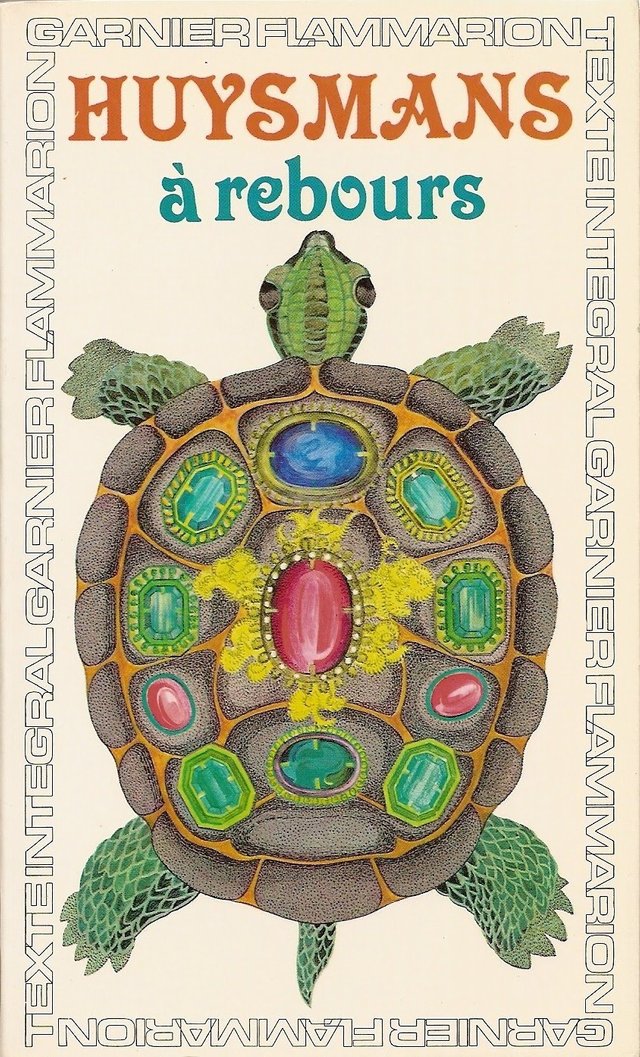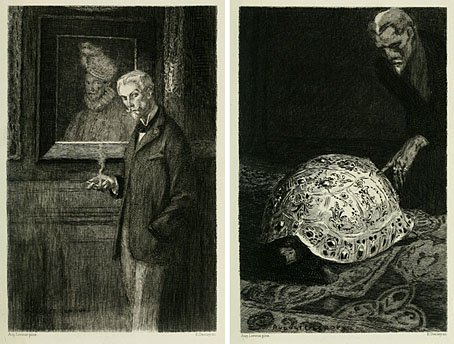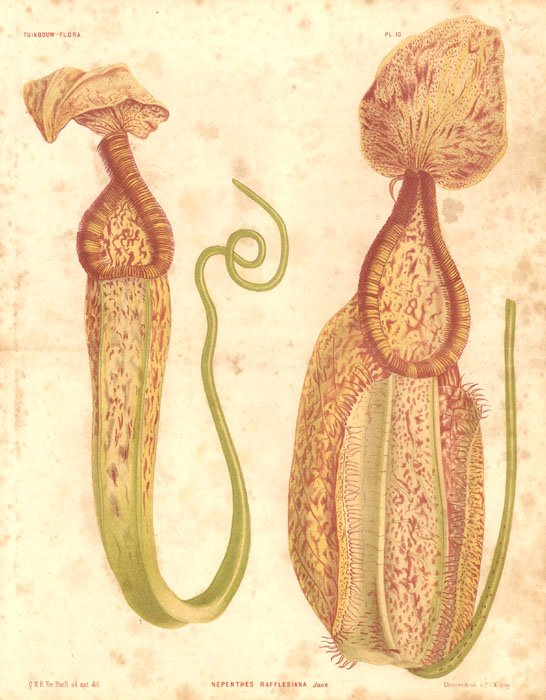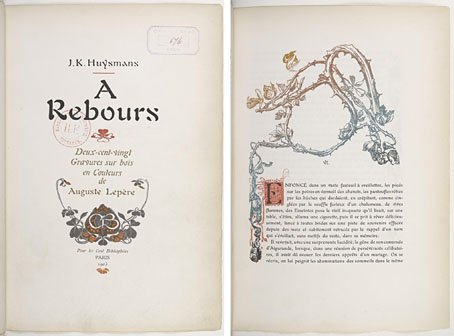A Rebours and the Black Dinner

The whole book is worth your attention... it is, after all, the corruptingly poisonous French novel mentioned in Wilde's The Picture of Dorian Gray and stands as the pinnacle of decadent writing... a form of intense analysis of the flood of impressions and senations... Au Rebours is evil in it's abandonment of external values, of friendship, of community...

But it was the black dinner that has stayed with me... an idea I've tried to replicate several times in the real world
It's not a long passage:
"In the dining room, hung in black and opening on the transformed garden with its ash-powdered walks, its little pool now bordered with basalt and filled with ink, its clumps of cypresses and pines, the dinner had been served on a table draped in black, adorned with baskets of violets and scabiouses, lit by candelabra from which green flames blazed, and by chandeliers from which wax tapers flared.
To the sound of funeral marches played by a concealed orchestra, nude negresses, wearing slippers and stockings of silver cloth with patterns of tears, served the guests.
Out of black-edged plates they had drunk turtle soup and eaten Russian rye bread, ripe Turkish olives, caviar, smoked Frankfort black pudding, game with sauces that were the color of licorice and blacking, truffle gravy, chocolate cream, puddings, nectarines, grape preserves, mulberries and black-heart cherries; they had sipped, out of dark glasses, wines from Limagne, Roussillon, Tenedos, Val de Penas and Porto, and after the coffee and walnut brandy had partaken of kvas and porter and stout."
This passages is short but stands as a Mandelbrot summary of the whole novel and if you dig deeper and you'll find everything; the casual sexuality of the waitresses (the specificity of their stockings is delirious), the intense, almost autistic, attention to detail of a man, preparing a meal that is in spite of the world.
It also stands as a kind of internalized and subjective encyclopedia of the world, as understood by one man, in all it's glory. Lots of deep, botanical and zoological detail; man standing looking at the World as a kind of visiting God, curious as to what his peers have been doing with their creative sparks.

As such, it should also be seen as a forerunner of psychedelia. It is not about drugs, perhaps (they are in here, though) but, to paraphrase Dali, it is drugs. It's a way of looking at the world as a collection of things in themselves (cf. Kant's 'ding an sich'); and Huysman is an outsider merging with the data... and being simultaneously compelled and appalled by his sensations. It's a sense of *apartness * that Sartre then exemplifies in Nausea but it's even more intense here because there is less panic... it's a slow slow descent into a beautiful kind of madness.

I love this book. The words drip off the page. They are delicious and they are richly flavoured.
You could not and should not eat a whole one.